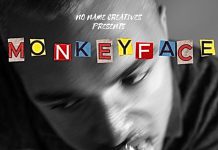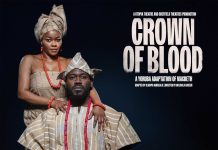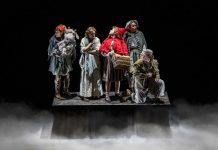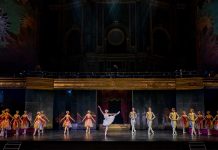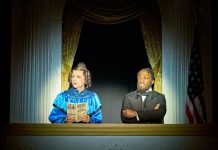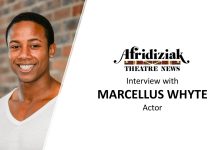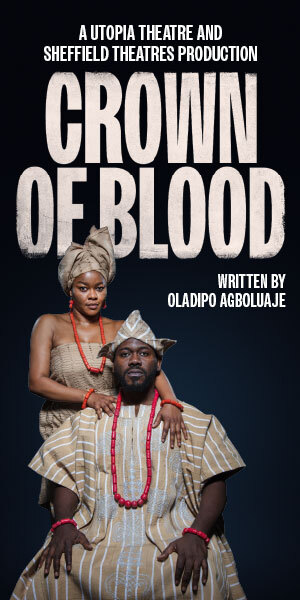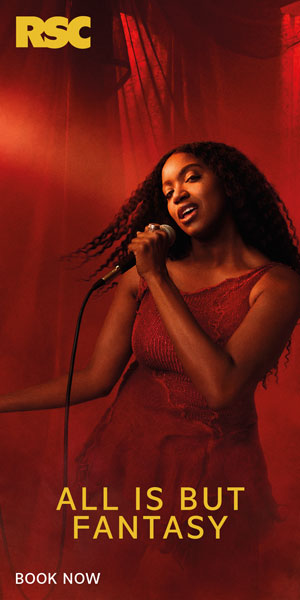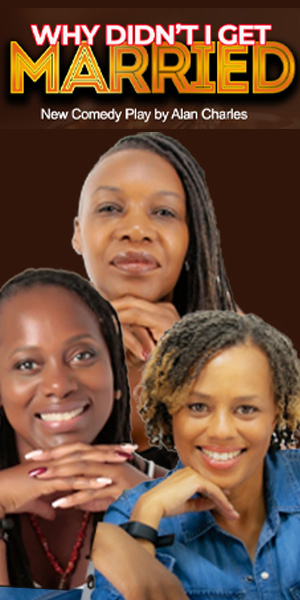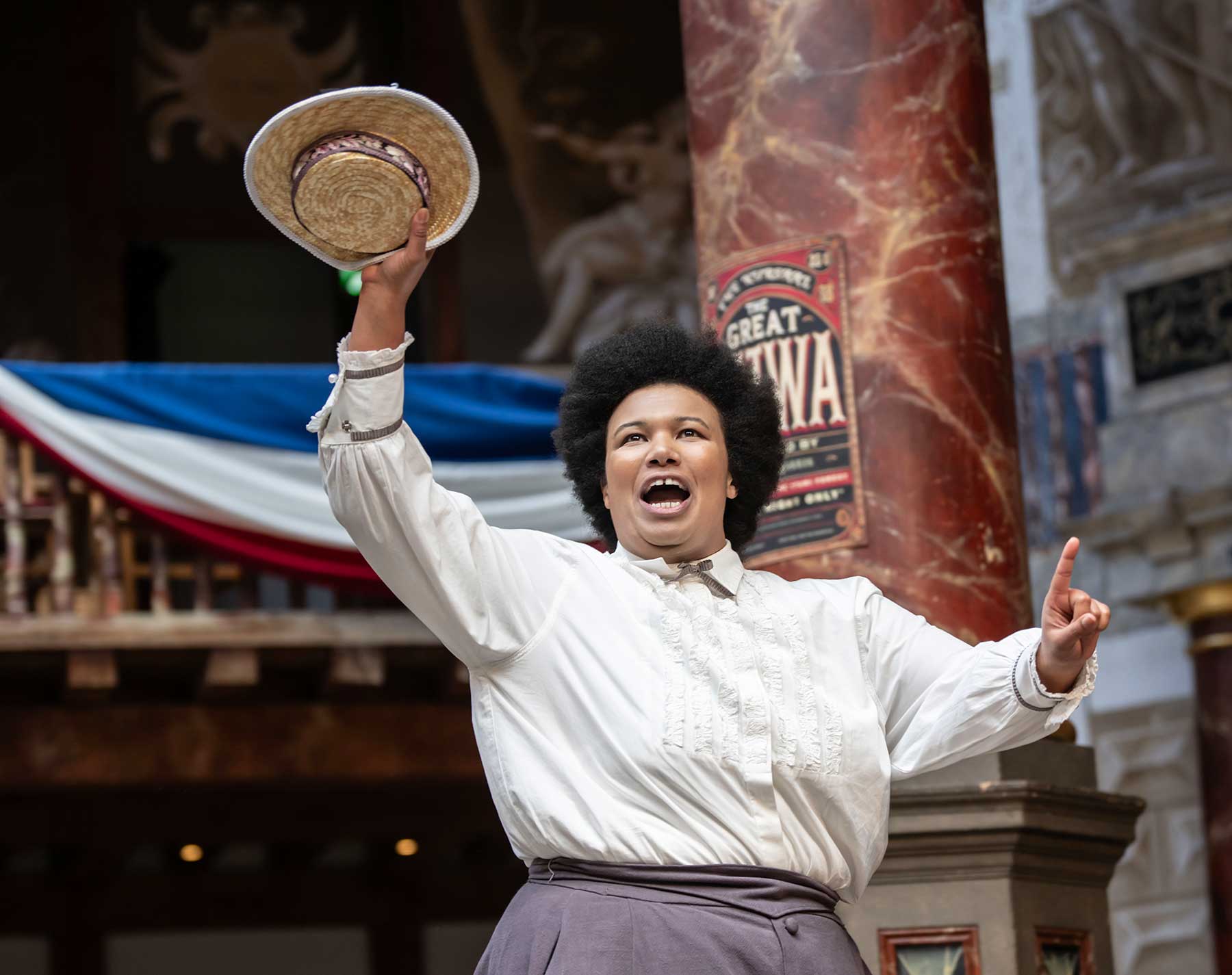
Anne Odeke (Princess Dinubolu) Anne is an actor, playwright and teacher. Anne trained at Mountview Academy of Theatre Arts. Previous work at Shakespeare’s Globe includes: A Midsummer Night’s Dream, As You Like It (CBeebies), The Merry Wives of Windsor, The Comedy of Errors, and Bartholomew Fair. Other theatre credits include: The Winter’s Tale (RSC); Macbeth (AFTLS, USA Tour); A Midsummer Night’s Dream & Julius Caesar (Storyhouse); Notes from a Small Island (Watermill Theatre); Princess Essex (Essex Tour); Killing Jack, The Witchfinder’s Sister & Misfits (Queen’s Theatre Hornchurch);
The Crucible (Royal Lyceum, Edinburgh); Women in Power (Nuffield Theatre); The Secret Keeper & Snow White and the Happy Ever After Beauty Salon (Oval House); Next Lesson (Pleasance Theatre); Winnie & Wilbur (Birmingham Rep). Audio work credits include: Megamonster (Harper Collins); A Midsummer Night’s Dream (RSC / Harper Collins); Blackwater Mermaid (BBC Sounds); United Kingdoms (BBC Radio 4). As a playwright, Anne’s credits include: Little Women (Storyhouse); Misfits (Queen’s Theatre Hornchurch). Anne is also a member of The Orange Tree Writers Collective for 23/24, and has written a new family play for the Queen’s Theatre Hornchurch entitled, ‘A place for me?’ – a tribute to the Windrush Generation.
Recently Anne Odeke, said: “I’m aware, it’s not every day you get asked to write a play for the Globe’s main stage and to be in it. Though a daunting task, it’s above all else, an exciting one, with the greatest privilege of all being able to share with audiences Princess Dinubolu’s incredible story; a story that for over a hundred years remained hidden – a story of beauty, of belonging, and of authenticity.”
Tell us a bit about the story of Princess Essex
Princess Essex is based on a true story about the first woman of colour to ever enter a beauty pageant in the UK. This happened in 1908 and what we know is that there is a Princess Dinubolu of Senegal who entered a beauty pageant at a building called the Kursaal in Southend-on-Sea, the largest entertainment building in the whole of Europe at the time. But – plot twist! – and spoiler alert, what we now know is that is extremely high probability there never was a Princess of Senegal. The current theory is that this “Princess” was actually a Black Essex woman who pretended to be royal to enter the pageant.
The story of Princess Dinubolu is somewhat an untold mystery that has faded in history but at the time was a controversial story. What was the inspiration for telling her story? Why now?
I get asked these questions a lot actually and I tend to offer a reframing of it to people, because I’m not convinced that the question is “Why Princess Essex?” or “Why now?”. I think the question is: why is it late? As of this year, it’s a story that happened 116 years ago. So what we have to ask ourselves is, why didn’t we hear about this incredible Black British story for such a very, very long time? That’s a question that leads into a more useful conversation about who the gatekeepers of history are.
On a personal note, I find this story inspirational. The current historical theory that this Senegalese Princess was a Black Essex woman of course resonates with me, a Black Essex woman! We know that she describes herself as “chocolate”, or “light-chocolate” – which I, as a mixed-race woman, also am. When I first heard about the story, I couldn’t believe everything with the Princess happened right on my doorstep in Southend where I grew up and she may have done too! This story happening to someone that I had an awful lot of parallels to draw me in.
Princess Dinubolu challenged a predominantly white establishment and demonstrated bravery and pride despite multiple racial barriers. What key message do you want to demonstrate to the audience?
For me, one of the key messages of Princess Essex is about authenticity; asking audiences to be true to themselves, to stay true to themselves, and to love and accept themselves for who they are. Particularly if they don’t see their own beauty or even feel loved in a world where they should. That’s what I wanted to get across in the character of Joanna, who transforms herself into this Princess. We witness the journey of a woman of colour living in 1908 and having to discover herself. We witness her fight along the way and, though we’re willing her to succeed, at the same time we’re also learning, quite quickly, that perhaps the world just isn’t ready for her.
One thing I would add: I used to be a full-time secondary school drama teacher before I became an actor 12 years ago and, as an emerging playwright, I am learning that I like doing the same thing in my writing as I do in my lessons: I don’t like telling people my answer at the beginning. I like my classes, my audiences, to go on the journey of learning with me. So that by the time we get to the end of a lesson, or the end of the play, they have a sense of ownership over their discoveries. They get to feel active, to be active in this journey. And, of course, I want (I hope) to change the world for the better because of it.
What parts of yourself do you put into your role?
Well, I guess as an actor you’re always putting parts of yourself into your characters. If your character’s sad, they’ll understand sadness in a way that you understand sadness. If your character’s happy, joyful, jealous – they’ll understand it in the way you do. You bring yourself to a character, certainly. But with Princess Essex, because I wrote it knowing I would play the character of Joanna, for me, the play has become much more personal. There are many things in regards to Joanna’s character – of self-discovery, of identity – that I maybe have always been struggling with. But the older I get, the more accepting of myself I have become. So I would say the character of Joanna for me is one that has more of me in it that any other role I’ve had in my career.
What is fascinating about this production is that the audience response to Princess Essex has been astronomical. It has been beyond anything I could have dreamed of, and I have realised that this is because it speaks to an awful lot of people on an awful lot of levels. It’s become the most amazing thing we have achieved with this play. I believe it’s happened because we have so many characters that speak to the many demographics that make up the Globe’s audiences.
If we’re focusing particularly on Black audience members, I did have immediate concerns whether this story, as such a specific Essex story, would speak to the wider Black community. So having such an unbelievable response is incredible. The amount of Black women, Black men, mixed-race women, men, people of colour who have come up to me and said that the piece has enabled them to be heard in a way that they never have before, has really taken be aback actually. It’s a very touching thing.
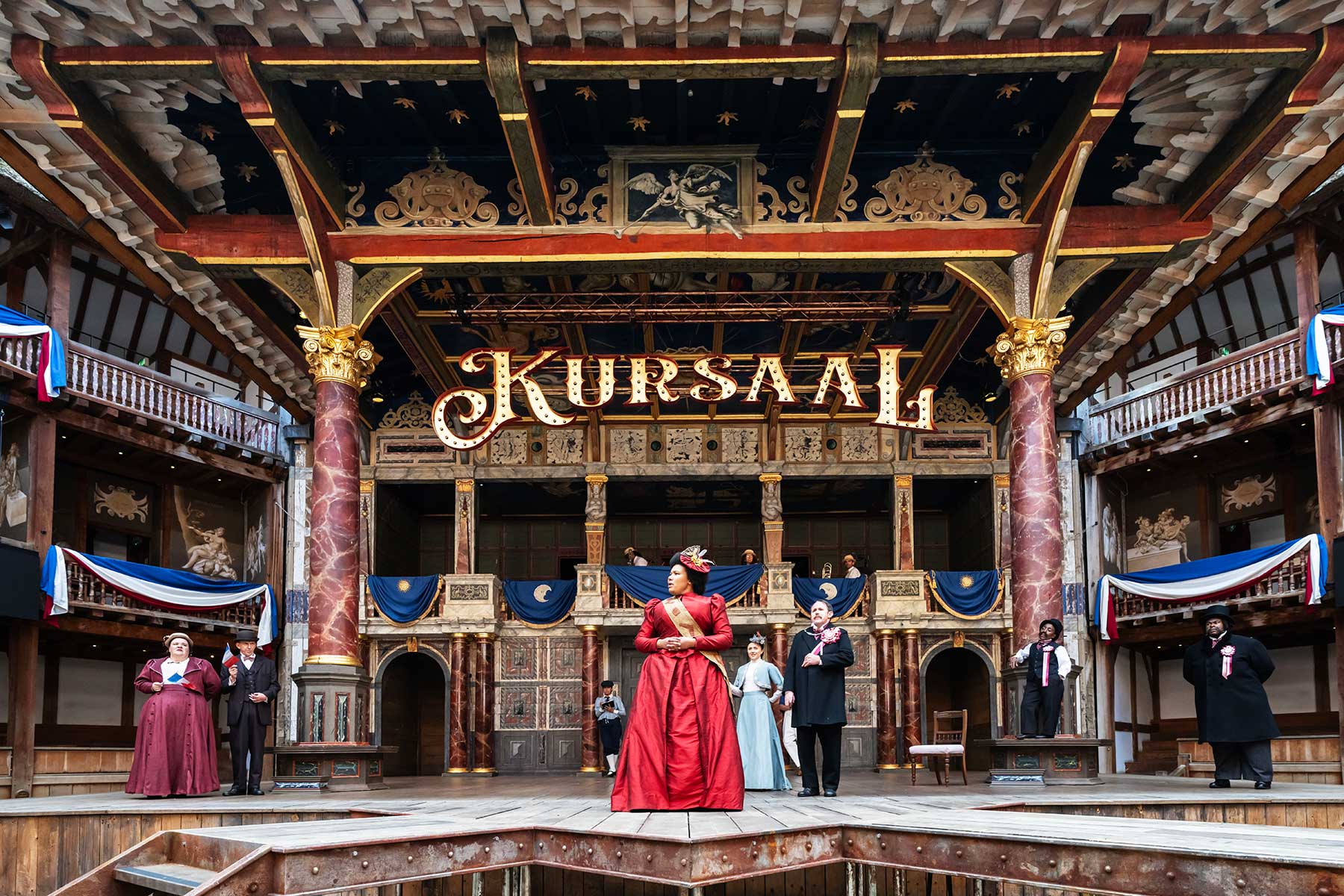
How does it feel to have written and performed your own play on the Globe’s main stage?
Well, it feels like a dream really. There are times where I think about how – and it’s too big a thought really – how I’ve written this play and I’m also performing in it – performing the lead as well! Of course, it goes without saying that it is the biggest privilege. Including the fact that, in terms of making history, I am the first woman of colour to have her play on the Globe stage and star in it – it’s an exciting thing. Exciting for many reasons: I can’t stress enough the importance of representation and representation really mattering. Of course, being in the Globe, I find myself in the position where I am up against William Shakespeare – the “white guy in the ruff” and a guy I studied in school.
I’d be lying to say I didn’t have moments of fear and self-doubt when I was first approached about writing Princess Essex for the Globe stage. Of course, I’m glad I said yes, and I’m glad I didn’t listen to those doubts. Mostly because, as I’ve said, the response has been amazing. What I will say is, I’ve felt very supported and have felt a lot of love during the whole journey to get to this point. So that’s a massive thank you to everyone who has supported me along the way.
By both writing and starring in Princess Essex, what creative direction did you want to take in this reimagined version?
There are several things creatively, going into writing and developing the play, that I knew I wanted to include in the reimagined version. In terms of the creative direction of the piece – I knew it was never going to be a one-woman version. As part of bringing this to the Globe stage, I’d been asked to make it an ensemble piece, that we would have a cast of at least 11 people and a band.
I’m a great fan of satire, so the piece is written in that style, and I think that the comedy element will draw audiences in before we start to hit them with some hard truths, as such. So I knew we’d have moments of comedy, moments of tragedy and – having played the Globe space and performed in many Shakespeare’s over the years – I’m aware in many of his plays, there is no comedy without tragedy, no tragedy without comedy. So, I knew that was going to happen here.
Thinking about what else I’ve learnt from Shakespeare that I wanted to bring into this play, I knew he loved songs and I love songs; also the importance of soliloquy. That’s why there are moments of direct address between Joanna and the audience. In terms of performance style, there’s a style on the main stage that works really well for that space, and I knew that the more heightened the play could be, at times, the better.
If you could invite anyone to press night, dead or alive, who would that be?
Who would I invite to press night?? I’m going to say Lenny Kravitz. For, well just quite obvious reasons. Just look at the man – he’s got it all hasn’t he? So, Lenny, if you are reading this: get in touch.
Need to know: Princess Essex plays at Shakespeare’s Globe until 26 Oct 2024

